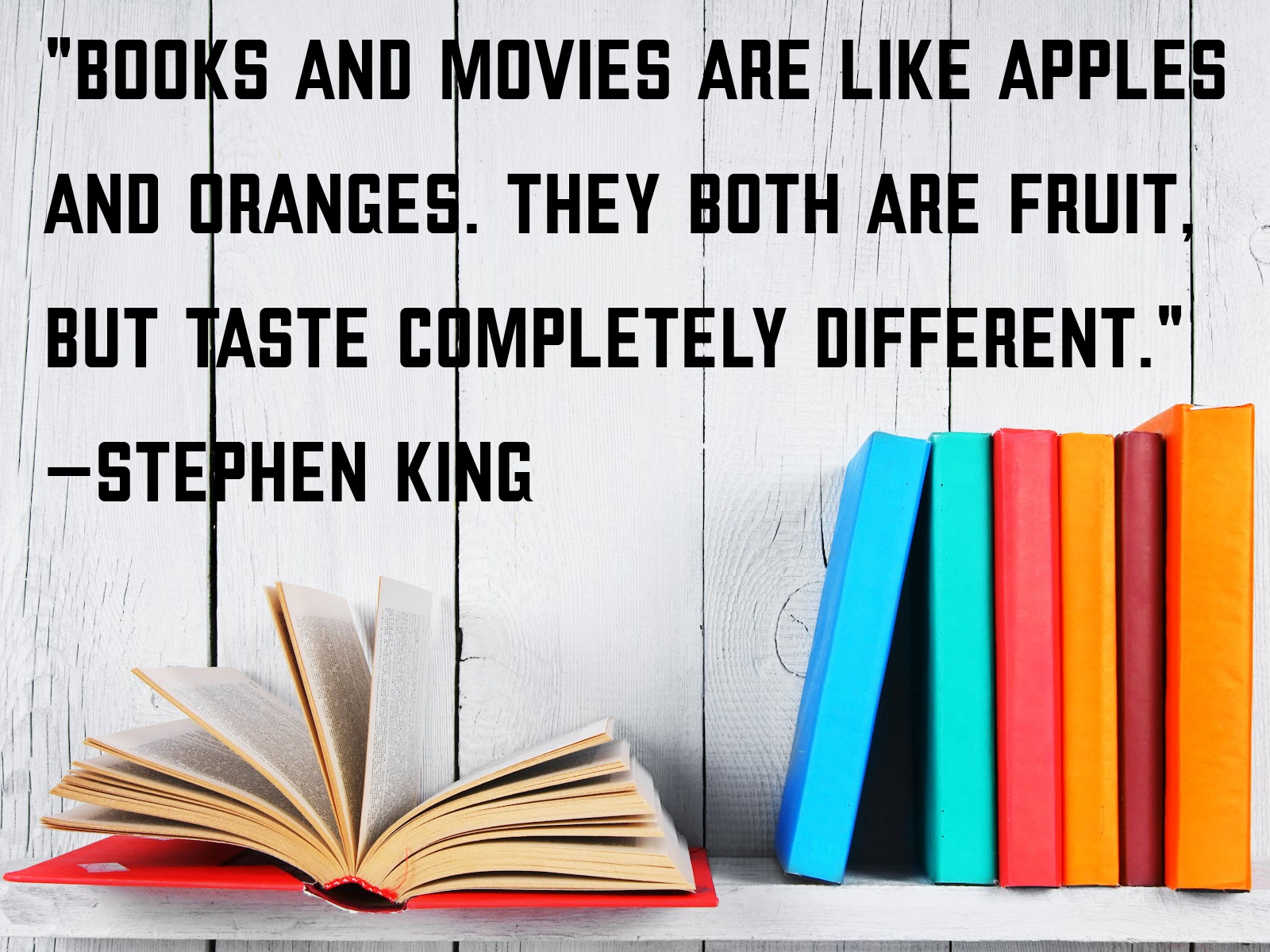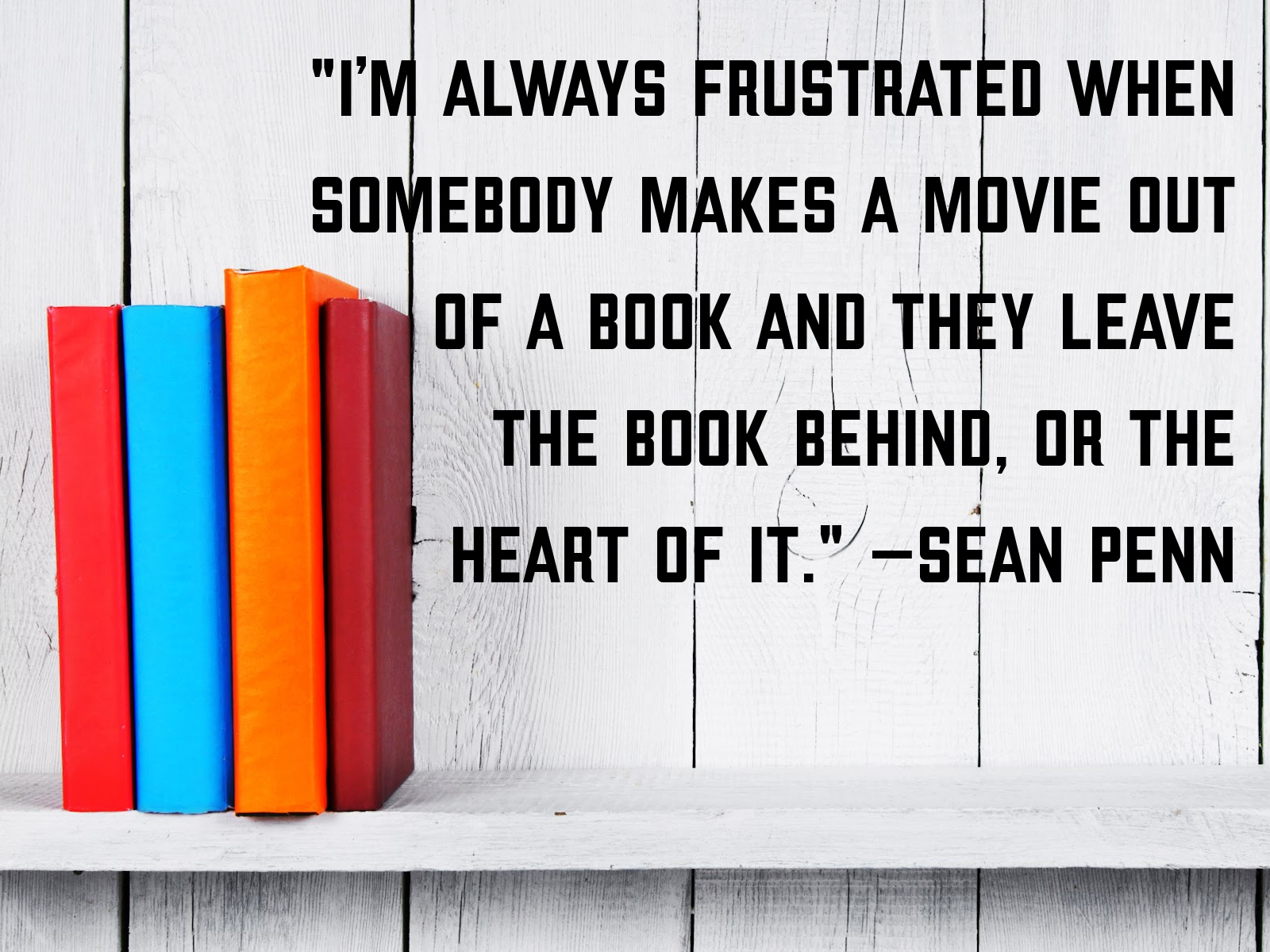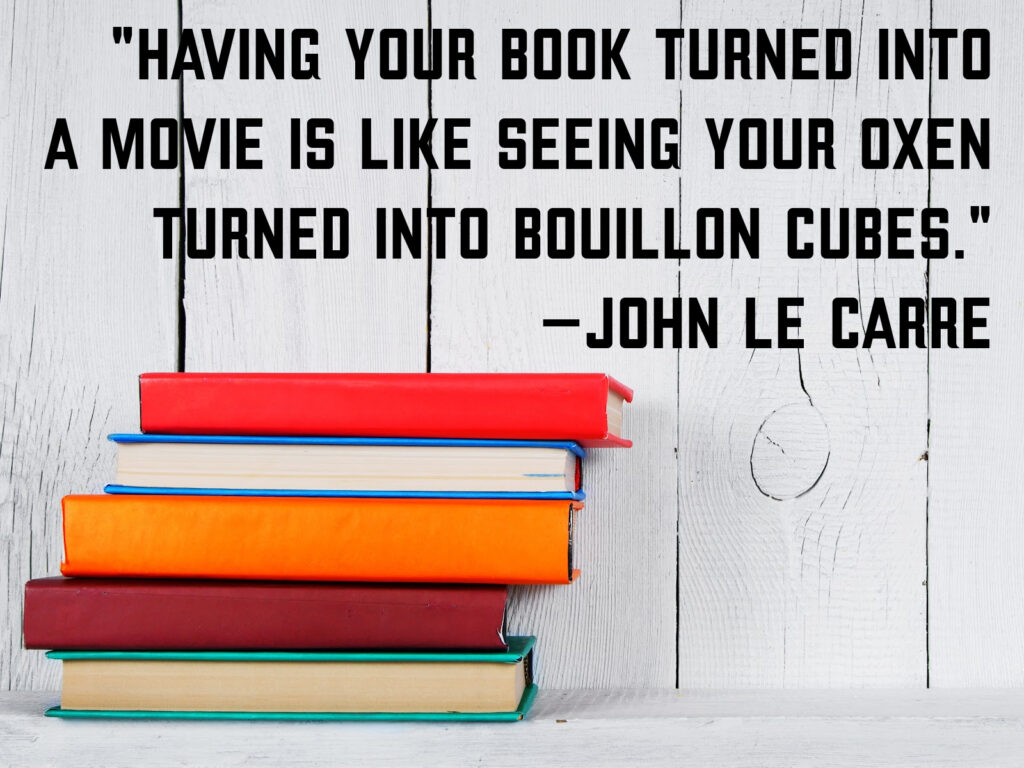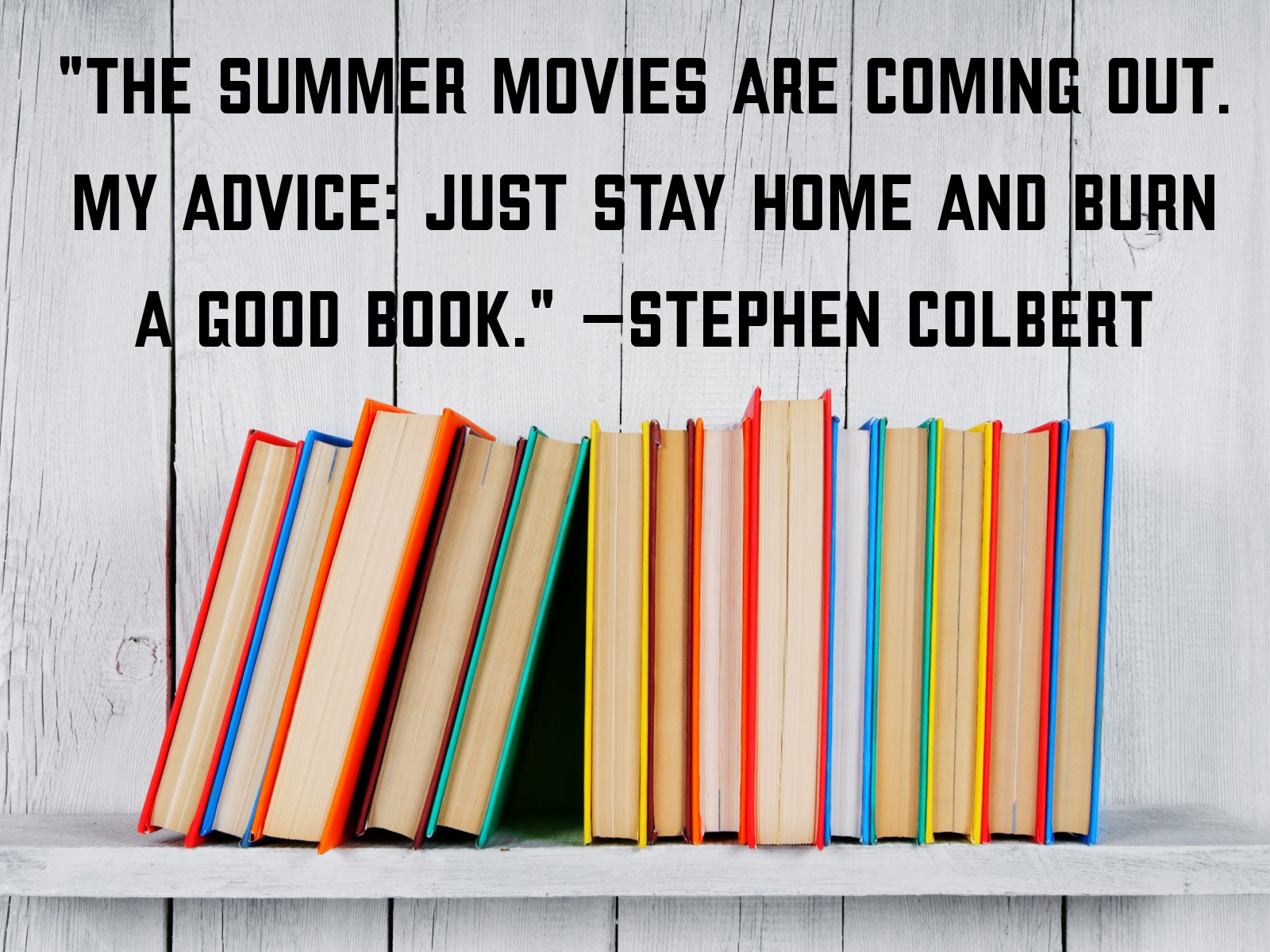Apparently 2023 is the year of the series for this blog! Last month I introduced Best of the Backlist, my new bimonthly series in which I am sharing roundups of favorite backlist titles within a genre, trope, or other unifying category. (Here’s last month’s collection of my favorite epistolary novels.) In alternate months I plan to keep the book vibes going with a series I am calling Bookish Considerations. In these posts I will pose a book-related question or idea to ponder and, true to form, I will offer my own thoughts for your consideration.
This month’s bookish consideration involves movies and television. Based on the title of this post, you are probably assuming a debate about the superiority of movies vs books. That is not the question I am considering, because it is no contest: books will ALWAYS win in my . . . um. . . book. (And bookish puns will always reign supreme.)

What I have been thinking about is differing preferences for screen vs print. I began pondering this when I heard a book podcaster discussing likable characters and whether or not a reader finds them necessary in order to enjoy a book. My initial response was no: I need to feel invested in the primary characters of a novel, and I don’t love when characters are written as “likable” but I personally don’t like them (as in Hello Beautiful) but they don’t always need to be likable for me to have a positive response to the book. (Gone Girl comes to mind here: I loathed each of the protagonists, yet it is one of my favorite thrillers.) However, this is not true with screen content: for me to enjoy a movie or television show, I really do need to like the characters if the viewing experience is to be a positive one.
I don’t have a clear explanation for this, though it likely has something to do with on-screen characters seeming more like people I’m hanging out with, and—call me crazy—I kinda prefer to hang out with people I actually like. Another factor is that books can provide greater context for a character (through backstory or inner dialogue or commentary) that allows me to appreciate him or her beyond their likability; screen characters are more unidimensional and harder to feel invested in if I find their behavior loathsome.
Another marked difference between my reading and viewing preferences is that I LOVE historical movies and shows. Visuals are a huge determiner of how I feel about something I am watching, and beautiful costumes and period scenes can absolutely make a movie for me. I love when film transports me to an entirely different time and place, and I care less for this in the books that I read: it’s true that some of my favorite novels are historical, but I generally prefer contemporary settings.

I am also more receptive to different cultural settings in film. I tend to like reading books set in my own culture (the United States or other westernized countries) because I can have a hard time visualizing a different country or adapting to unusual names and terms as I read them. Film makes these types of foreign settings more accessible and much more enjoyable. Once again, it seems that I am more eager for film to transport me while I want books to reflect me and my world.
One final difference is that viewing is more of a social endeavor than reading. I enjoy talking about what I’ve been reading, but I don’t have to discuss a book for it to have been a worthwhile reading experience. However, I never watch television or movies by myself and after watching I must discuss!
Not everything is different about my reading and viewing preferences: I steer clear of profanity, graphic sexuality, and gratuitous violence and gore in both books and film. In both my books and my movies/shows, I am always looking for strong themes, a little artistry, and emotional resonance, and I appreciate a healthy balance of character development and plot. On the page and on the screen, I am comfortable with unhappy or open endings if they makes artistic sense, but usually I prefer tied-up storylines and happy ever afters.

Since we are talking about books and film, I’ll address the subject of screen adaptations. My overarching opinion of these is frustration with the television and film industries that seem devoid of creativity or far too risk-averse to put forth their own fresh content: nearly every current release is a remake, a sequel, part of a huge franchise, or a book adaptation. (Zero originality, Hollywood!) Some of these adaptations are decent but many should never have been made.
In general, I like when a film adaptation closely follows the source material unless there is a glaring reason not to (either the book is too long, or cannot be accurately be portrayed in film, etc.) A huge discrepancy between the book and screen versions needs to be 1) necessary and 2) creatively executed to win me over. It is a major pet peeve when the film adaptation completely changes a character (a different age, ethnicity, gender, or demeanor than is depicted in the book), or when the whole film/show bears no resemblance to the book beyond a shared title. To me, this screams of a desperate attempt to gain viewership without taking the effort to faithfully adapt the book or (even better) come up with an original storyline. This trend seems lazy and dishonest, and I’m surprised more readers/viewers aren’t opposed to this practice. (Did I mention I may bring some strong opinions to this Bookish Consideration series?!)
In the end, I will fully admit that I care much more for books than any form of screen entertainment, original or adaptation. I’m not above enjoying a good show or movie, but if given the chance I will always read a book over watching anything on a screen.

Now it’s time for you to consider: how do your reading and viewing preferences align? Do you like watching movies and shows similar to the types of books you choose to read, or are there noticeable differences? How do you feel about screen adaptations? Feel free to share your opinions in the comments!
Years ago we went to see Cider House Rules with another couple and I tried to discuss the movie on our way home (which I thought was normal!) and the woman chastised me and told me I was ruining the movie for her! Oops! 😂😂😂
She would not want to be my movie/reading mate. The fastest way to ruin a movie or book for me is to NOT discuss it!
I don’t think we ever went to another movie with them! 😂😂😂